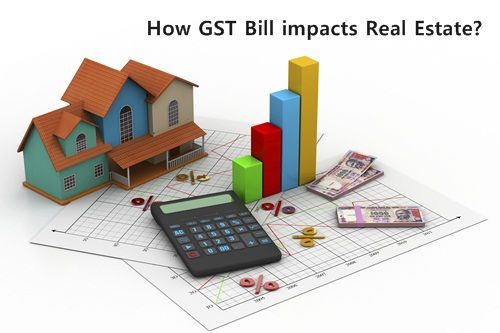The Impact of GST on Real Estate Sector - GST Impact on Property Prices
The implementation of the GST: Goods and Service Tax having huge implications on the real estate market in India. GST is conceptualized around a ‘One Nation, One Tax’ idea. The earlier tax system is riddled with indirect taxes. Now GST will eliminate the cascading effect of taxes on production and distribution prices on goods and services.
With the rollout of the Goods and Services Tax (GST) from July 1, 2017, there is significant anxiousness and uncertainty among the stakeholders in the real estate market. There is a much difference between Real Estate sectors to other sectors. Various sectors, such as electronics, automobiles, etc., were encouraging buyers to invest before the GST, with ‘pre-GST sales’ and campaigns that promise to pay the difference. Experts point that industries like electronics and automobile, function differently from real estate. Prices of electronics and cars change on a regular basis but the real estate sector does not work in this manner. “Due to the many complex factors involved, it will not be feasible for a developer to make such a commitment.
The system of indirect taxation in the real estate industry, started as recently as 2004, when service tax was applied to works contracts of commercial properties. It was then introduced to residential properties and was followed by many state governments introducing the value-added tax (VAT) to all under-construction properties.
Any real estate manufactured goods has 3 cost components - land, material and labor or service cost. With the completion of GST, the tax calculations would become much simpler, since the buyer has to pay only a single tax. GST may have a minor impact on the sector, but it will bring major improvement in buyer perception.
Under the Goods and Services Tax (GST), the effective tax on under-construction projects has gone up to 12 per cent, which is an increase of 6.5 per cent. The actual GST rate is 18 per cent on realty, but allows one-third of the tax to be deducted from the land value, from the total cost charged by the developer. While the GST gives an option of getting full input set-off credit, this is not applicable on ready-to-move-in flats and as a result, developers will have to bear the burden of the higher tax or pass on the same to the end-consumers or increase the overall prices, to match the new tax burden, say developers. However, new flats will cost less, giving some breather to the developers of upcoming projects.
So finally we will come to one conclusion that due to GST builders will get marginal benefits but buyers’ situation will depends on builders. Both the residential and commercial properties having the same impact even though there is a difference in tax rates. The ready to move projects and under construction projects also will show the difference with different tax rates. So the impact of GST on Real Estate Sector is very marginal.

